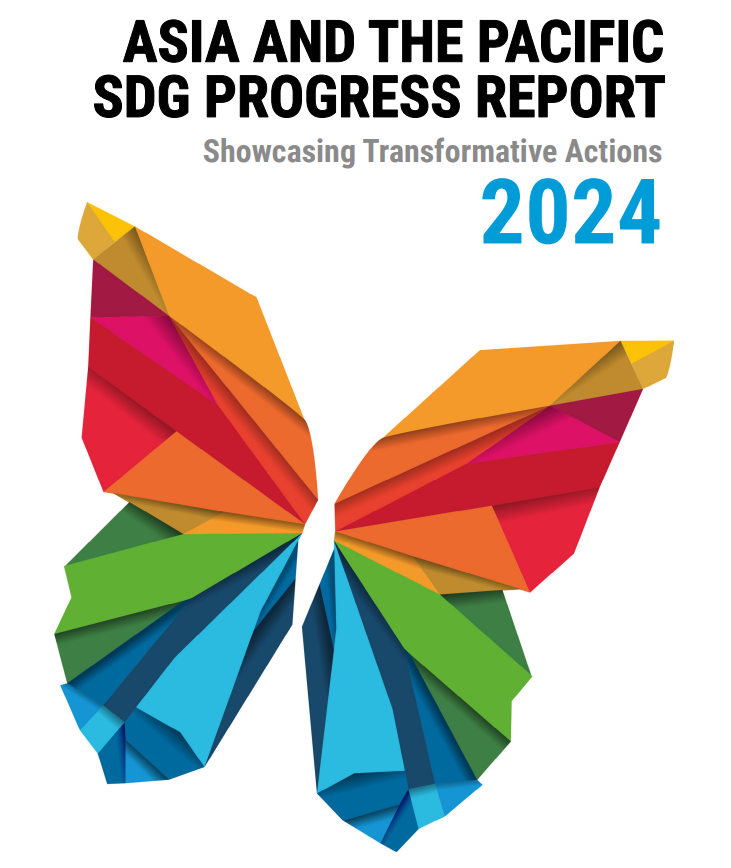Asia and the Pacific SDG Progress Report 2024 paints a sobering picture of the region’s journey toward the Sustainable Development Goals (SDGs). Despite some advancements, the report forecasts that the region is off-track to meet all 17 goals by the 2030 deadline, projecting a new estimated achievement date of 2062.
The progress report suggests that as of 2023, the region has only made 17% of the progress needed to meet the goals by 2030. The data indicates that only a third of the required progress is expected by the deadline, marking a significant shortfall.
 Will Asia and the Pacific close the gap to achieve the SDGs?
Will Asia and the Pacific close the gap to achieve the SDGs?
Source: Asia and the Pacific SDG progress report 2024
Poignant Progress and Persistent Hurdles
There are pockets of success amidst the overall delays. Goals 1 (No Poverty) and 9 (Industry, Innovation and Infrastructure) have seen substantial progress, setting a precedent for other areas. However, these strides are not sufficient to meet the targets on time.
Conversely, goals related to Zero Hunger, Good Health and Well-being, Clean Water and Sanitation, Affordable and Clean Energy, and Sustainable Cities and Communities are in dire need of escalated efforts. Alarmingly, Goals related to Decent Work and Economic Growth as well as Environmental Sustainability (Goals 12, 14, and 15) are facing the most significant hurdles, with the least progress made.
The report also calls for immediate prioritization of Climate Action (Goal 13), emphasizing the challenges faced due to insufficient data which complicates the measurement of progress.
Disparities and Successes
Small Island Developing States (SIDS) are identified as particularly vulnerable, having seen their progress erased by COVID-19 impacts. Similarly, Least Developed Countries (LDCs) and Landlocked Developing Countries (LLDCs) are lagging, with LLDCs faring relatively better.
Gender disparities continue to hinder progress, with women and girls facing significant challenges in education and employment. Rural populations are also highlighted as disadvantaged, particularly in their access to clean water, sanitation, and clean cooking fuels.
Notably, the report shares success stories such as the effective environmental and climate strategies adopted by the Maldives and other SIDS. These demonstrate the power of integrated approaches to climate change and biodiversity conservation. Additionally, initiatives like digital training programs in Viet Nam underscore the importance of public-private partnerships in driving digital transformation and employment.
Critical Role of Data and Monitoring
Data availability remains a crucial element for informed decision-making, yet only 52% of SDG indicators are backed by sufficient data. Goals like Gender Equality and Peace, Justice, and Strong Institutions are particularly affected by data scarcity.
Actionable Recommendations
The report puts forth several recommendations to catalyze progress. Enhancing data systems is at the forefront, emphasizing the need for stronger statistical systems to support effective policy-making, especially for climate action. It calls for a recalibration of policies to address ongoing crises and realign with SDG targets. Moreover, regional collaboration and partnerships, particularly beneficial for SIDS and other vulnerable groups, are encouraged.
The report also stresses the importance of focusing on vulnerable groups, including children, stateless populations, and persons with disabilities, to ensure that progress is inclusive and leaves no one behind.
Despite the challenges
The report holds an underlying message of hope, suggesting that with concerted effort, innovation, and cooperation, the Asia-Pacific region can accelerate its progress toward the SDGs. The call to action is clear: the region must redouble its efforts to transform these goals from aspirational targets into a lived reality for all its citizens.



